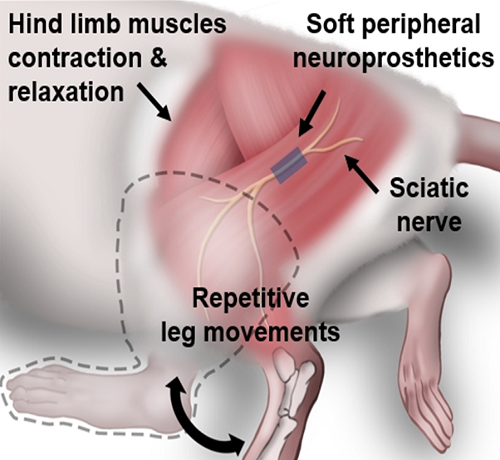2021 Durable and Fatigue‐Resistant Soft Peripheral Neuroprosthetics for In Vivo Bidirectional Signaling
본문
- Journal
- Advanced Materials
- Vol
- 33
- Page
- 2007346
- Year
- 2021
Soft neuroprosthetics that monitor signals from sensory neurons and deliver motor information can potentially replace damaged nerves. However, achieving long-term stability of devices interfacing peripheral nerves is challenging, since dynamic mechanical deformations in peripheral nerves cause material degradation in devices. Here, a durable and fatigue-resistant soft neuroprosthetic device is reported for bidirectional signaling on peripheral nerves. The neuroprosthetic device is made of a nanocomposite of gold nanoshell (AuNS)-coated silver (Ag) flakes dispersed in a tough, stretchable, and self-healing polymer (SHP). The dynamic self-healing property of the nanocomposite allows the percolation network of AuNS-coated flakes to rebuild after degradation. Therefore, its degraded electrical and mechanical performance by repetitive, irregular, and intense deformations at the device–nerve interface can be spontaneously self-recovered. When the device is implanted on a rat sciatic nerve, stable bidirectional signaling is obtained for over 5 weeks. Neural signals collected from a live walking rat using these neuroprosthetics are analyzed by a deep neural network to predict the joint position precisely. This result demonstrates that durable soft neuroprosthetics can facilitate collection and analysis of large-sized in vivo data for solving challenges in neurological disorders.

